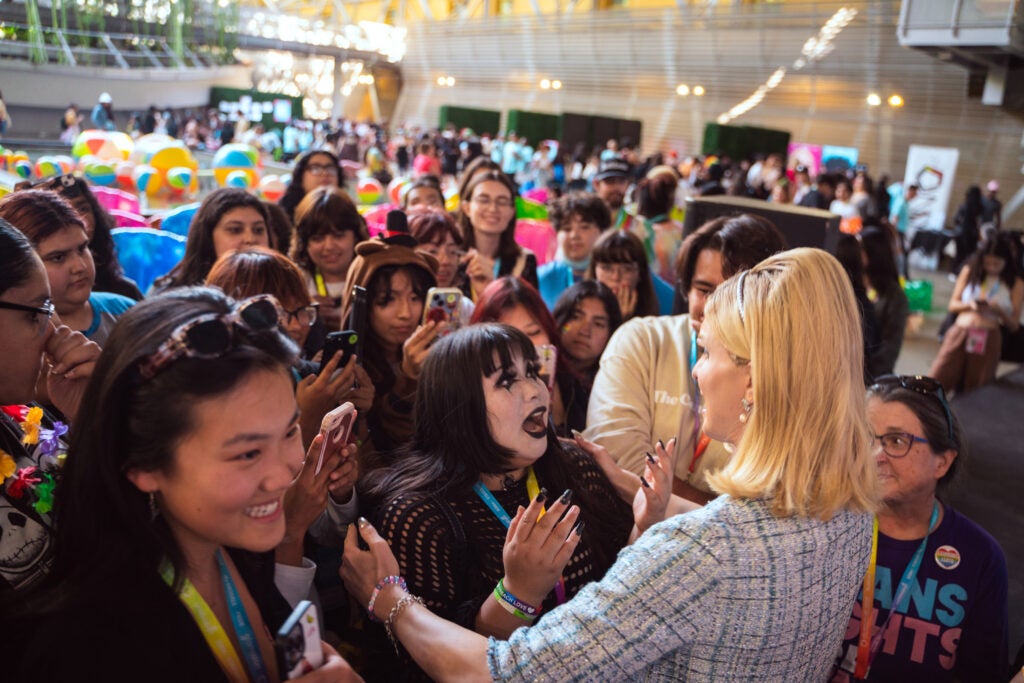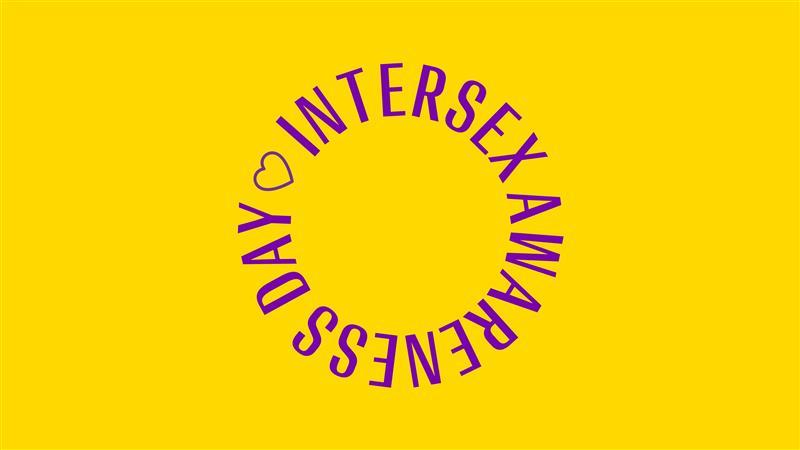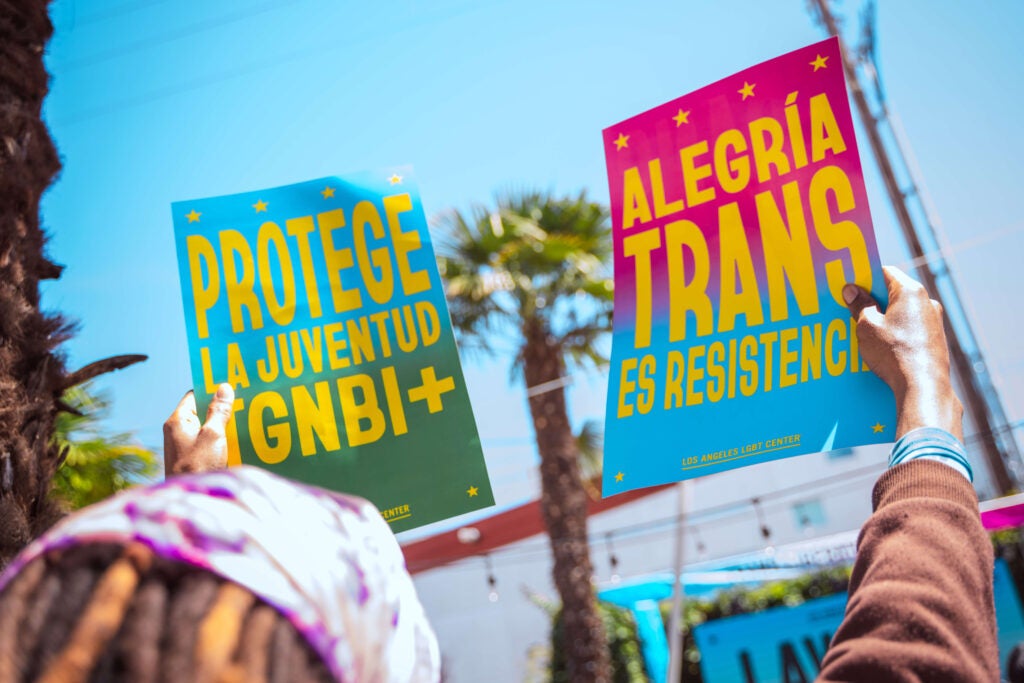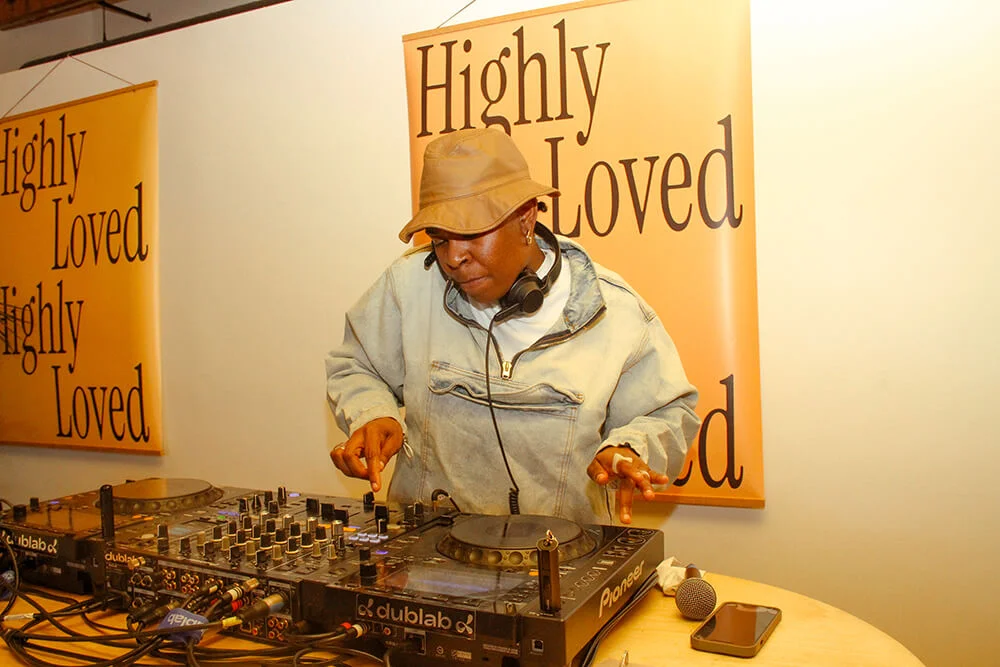Intersex Awareness Day, observed annually on October 26, marks a crucial moment for visibility and advocacy in the intersex community. The tradition began in 1996, commemorating the first public demonstration by intersex activists in Boston, which aimed to challenge harmful medical practices and the erasure of intersex people. Today, the day serves as a platform to amplify intersex voices, educate the public, and celebrate the diversity of human bodies.
For Val Hill (she/they) and Kira Kull (they/them), two intersex advocates who have found community through spaces like the Center’s Club Intersex, the day carries both weight and hope.
“There’s so much to the word ‘intersex’—it can feel a little overwhelming to have just one day to raise awareness,” says Hill, who also serves on the Center’s Intersex Community Advisory Board.
“Intersex is natural. Intersex is sexy. Intersex is beautiful and talented and powerful and just a part of the human experience, too.”
Kira Kull (they/them)
“Intersex” is an umbrella term that is used to describe a wide variety of people with differences in sex traits or reproductive anatomy. According to experts, about 1 in 2,000 people are born with intersex traits. However, the intersex community has comparatively little public visibility, due in part to the systemic erasure of intersex variations (given that they contradict the widely held misconception of a biological sex binary) and the still common practice of non-consensual and medically unnecessary surgeries to ‘correct’ certain intersex traits.
For Kull, Intersex Awareness Day is an opportunity to connect with others like themself. “Intersex is natural. Intersex is sexy,” they say. “Intersex is beautiful and talented and powerful and just a part of the human experience, too.”
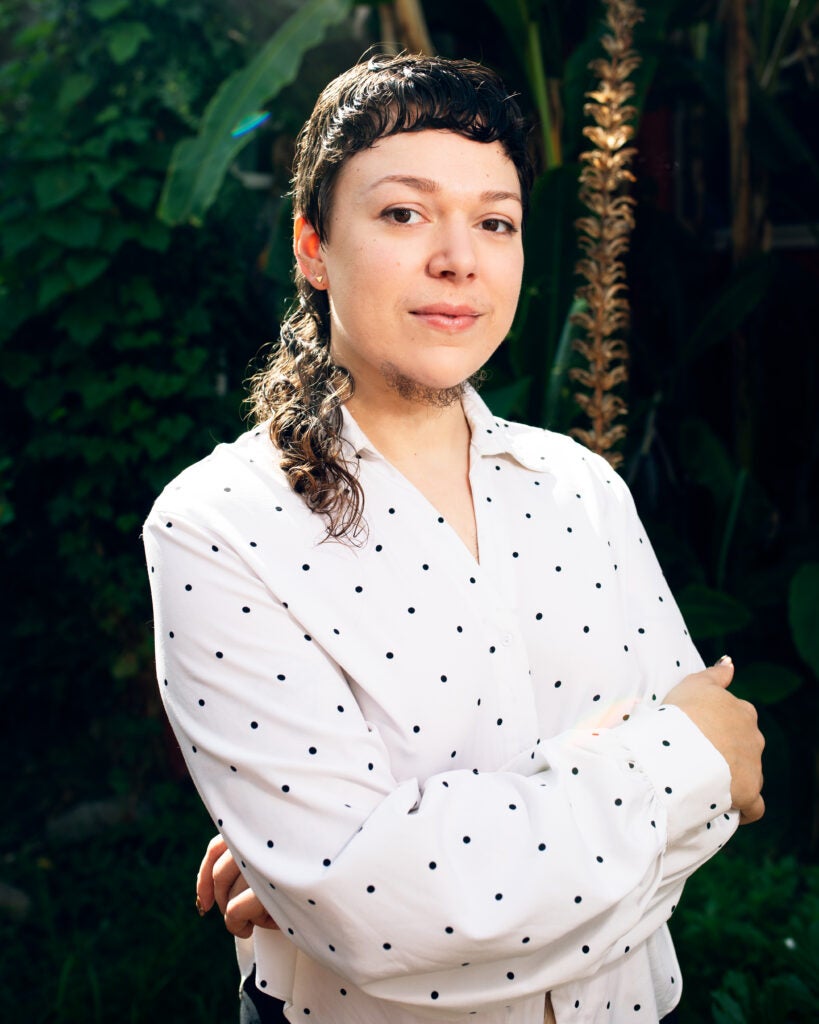
What does Intersex Awareness Day mean to you?
Hill: It can sometimes feel like a lot as an intersex person, honestly. Even just the word “intersex,” there’s so much to it, so it can feel a little overwhelming at times to just have one day where we raise awareness. Ideally, we’d like to be raising awareness year round. But ultimately, it’s an opportunity for people to promote any number of things, whether it’s the art or content of other intersex creatives or educational and support resources for intersex people.
Kull: A sweet piece of context for me and Val, specifically, is that we actually met through the Club Intersex group a couple years ago. And so for me, I like to commemorate it by doing things like this, where I just get to have conversations with other intersex people, trans folks, gender-expansive people and other queers. It’s an opportunity to commiserate and see how everyone’s doing. We share stories of success and challenges in our lives, because the biggest thing, for me, is just celebrating the fact that we’re alive, that we’re still here, that we’re thriving. So it really makes me happy to see you, Val, especially today.
Why do you think there is so little visibility for intersex people relative to how many intersex people there are in the world?
Hill: A lot of us throw the number 1.7% [popularized by gender and sexuality researcher Dr. Anne Fausto-Sterling]. Or we say it’s the same as people who have red hair or green eyes or are born a twin. We have these stats that we throw out as reference points, but there’s actually no consistent record-keeping of intersex people, because not all variations are physically apparent at birth.
There’s also a lot of other reasons we could get into like colonialism, white supremacy, the patriarchy, etc. that suppress our variations for reasons that are quite nefarious. These kinds of oppressors want to erase us because we defy what most people would conceive of as “typical.”
Kull: I’m so glad you mentioned that, Val, because intersex people have always existed throughout all of history, across every continent, in every culture—and we have evidence of this. It’s known, but the project of white supremacy and colonialism is really deeply, deeply rooted in a Christian mentality with these very strict gender roles of man and woman. So anyone who doesn’t easily fit into those categories is seen as abnormal. That’s why we need days like this to spread awareness and say, “Hey, not only do we exist, but we’ve always existed, and it’s perfectly natural and normal.”
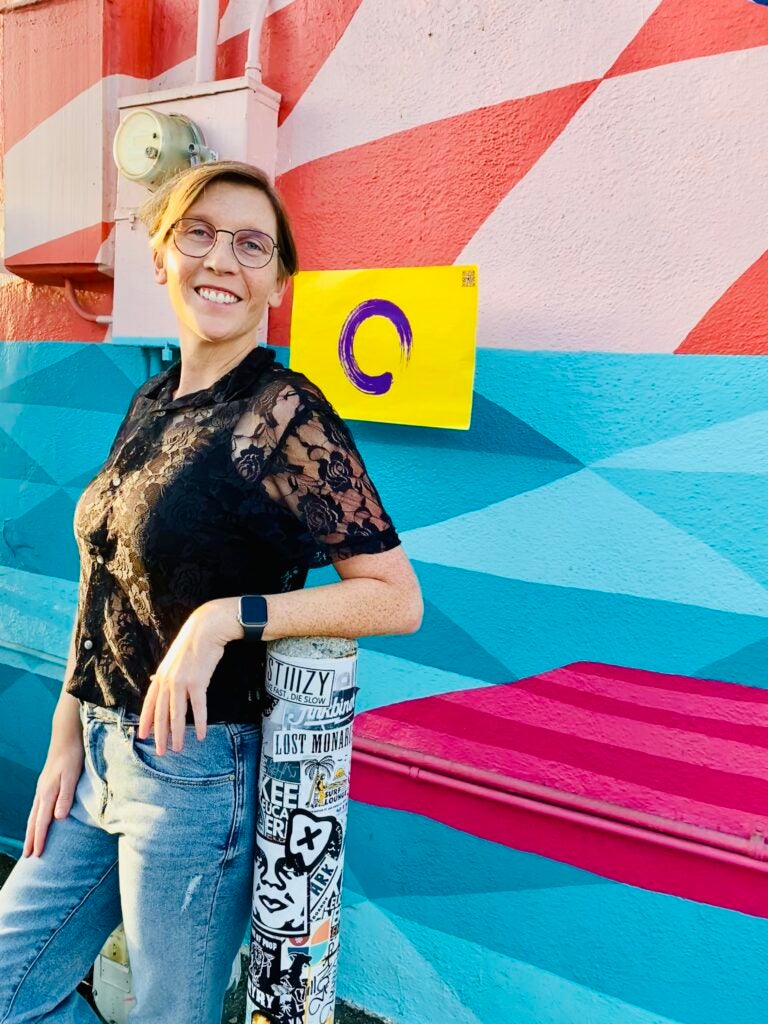
What do you wish people knew or understood about intersex people?
Kull: One of the things that comes up a lot is this lie that this is something new or that there’s no historical context for it. That is a lie. It’s not true. We have evidence of intersex and trans people existing not only in ancient cultures, but even in living Indigenous communities—the Māhū community in Native Hawaiian and Tahitian cultures, the Hijra communities in India, beautiful Two Spirit communities throughout this continent—people who naturally have bodies that identify somewhere in between a male or female ideal are so often, currently and historically, celebrated and welcomed in as artists, as shamanic healers and connectors, as bridges between different communities. I really just want people to know that this is normal and natural, and we too can just be welcomed.
How does the intersex movement benefit from solidarity with the broader TGI community?
Kull: Personally, it’s important for me to feel that solidarity with trans folks, because I share that experience of having, as an adult, gone through what I call a “second puberty” and having that really change the presentation of my gender. But in terms of activism, we see so much hypocritical legislation where bills attempting to ban gender-affirming care for trans people have written exceptions for non-consensual surgeries and the very same hormone treatment given to intersex kids.
Hill: Another hot topic is sports at any level—youth, high school, collegiate. The recent Summer Olympics come to mind with the boxer, Imane Khelif was accused of being trans in order to discredit her victory after her opponent forfeited. The intersex community has largely been erased from society, but now we’re being thrust into the public forum and have become a dog whistle for certain groups who want to demonize the existence of trans people and bar them from playing sports. There are all these ways that our struggles, trans and intersex people, are inextricably linked and bound together. Solidarity and support of each other is so important.
Kull: Another thing that really impacts anybody who even has a chance of being perceived as gender-expansive in any way is bathrooms. Five years ago, I did a cross-country road trip, and I was thinking about that recently. I would be more afraid to do that trip today, especially in certain parts of the country.
You’re not alone. You are completely normal.
Val Hill (she/they)
What advice would you give to intersex youth growing up today?
Hill: I would say, you’re not alone. You are completely normal. There is a lot of information available, so I would encourage them to seek out resources. Peer support has probably been the most beneficial thing that I’ve incorporated into my life to help heal the trauma that comes with being intersex. Because the medical community is the one usually doing these things that harm us, and so we have to find support amongst each other. That’s why spaces like Club Intersex can be so powerful. But I would say, you shouldn’t feel pressured to come out or to disclose. Be sure you want to before you do share, because it is a lot to put out there. Kira, how about you?
Kull: I would say your body is yours. It’s all about you and your intuition. Even in those moments that probably every intersex person experiences, where you feel very alone and isolated, it’s about developing a sense of self-trust. Knowing that I know what’s best for me has been one of the things that’s really gotten me through.
Hill: That’s a good point, because so much of the harm we experience occurs in a medical setting. When I think back to what I endured as a child, as a teenager, it’s such a scary situation to be in for a minor. But don’t be afraid—even as an adult—to push back or to ask questions. Be aware that you have to do a little bit of advocacy for yourself in those spaces. InterACT has all kinds of information. You could just literally print it out a PDF and hand it to your doctor.
Kull: It’s so important to just care for ourselves, that’s the top priority. Sometimes that means acknowledging that it’s not easy and it doesn’t feel good.
For resources, information or to join Club Intersex, click here.
Read More
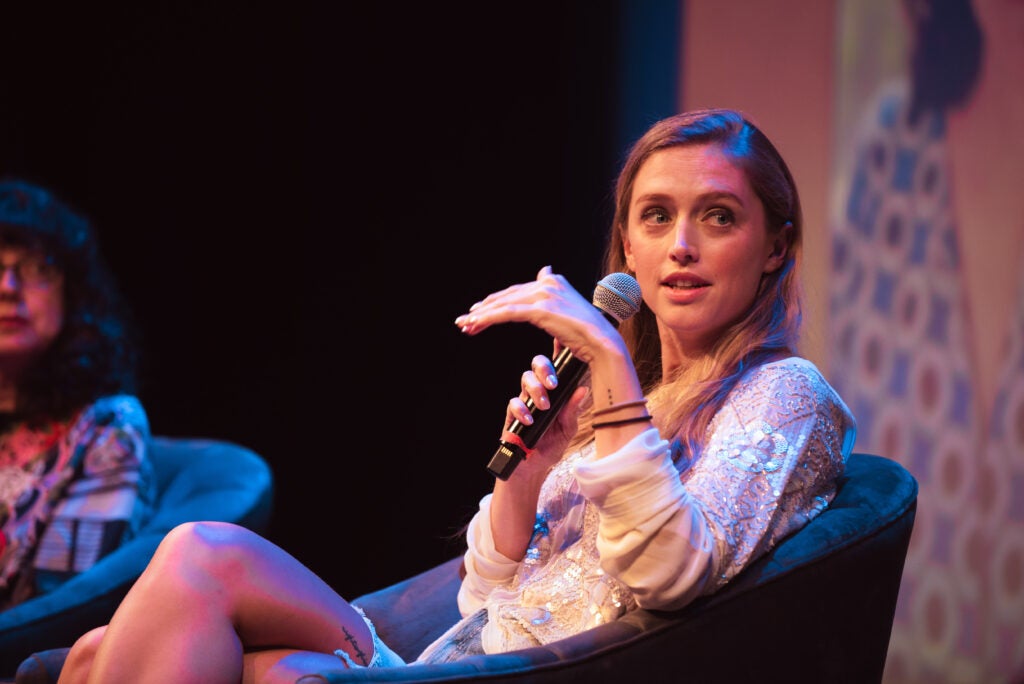
Intersex Advocate Alicia Roth Weigel Calls for an End to Non-Consensual Surgeries at ‘Every Body’ Screening
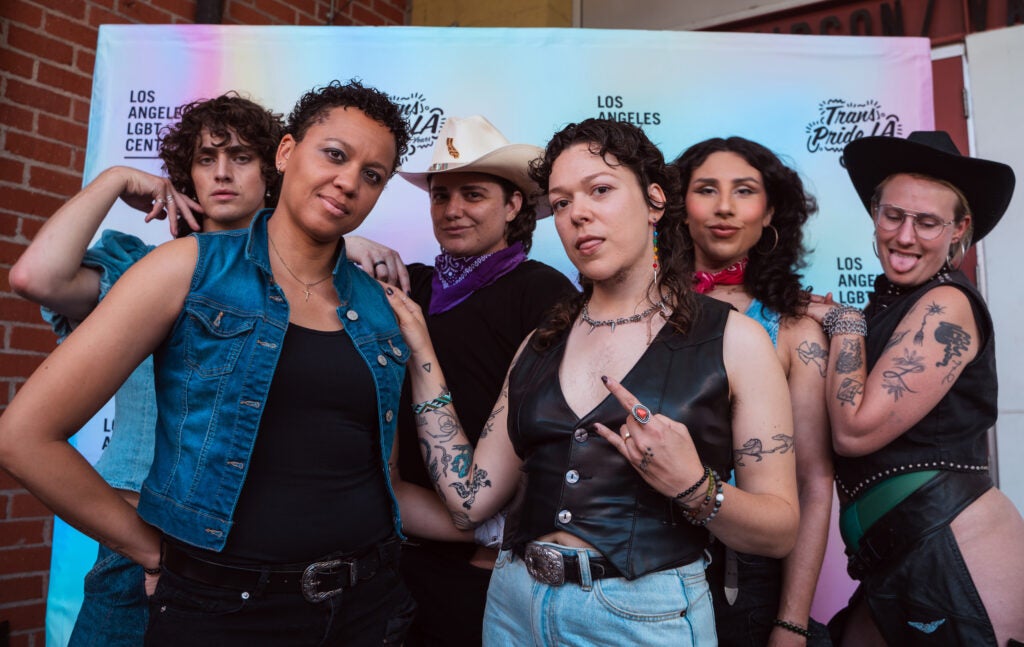
‘Trans Pride Forever’: Celebrating 25 Years of Trans Pride LA
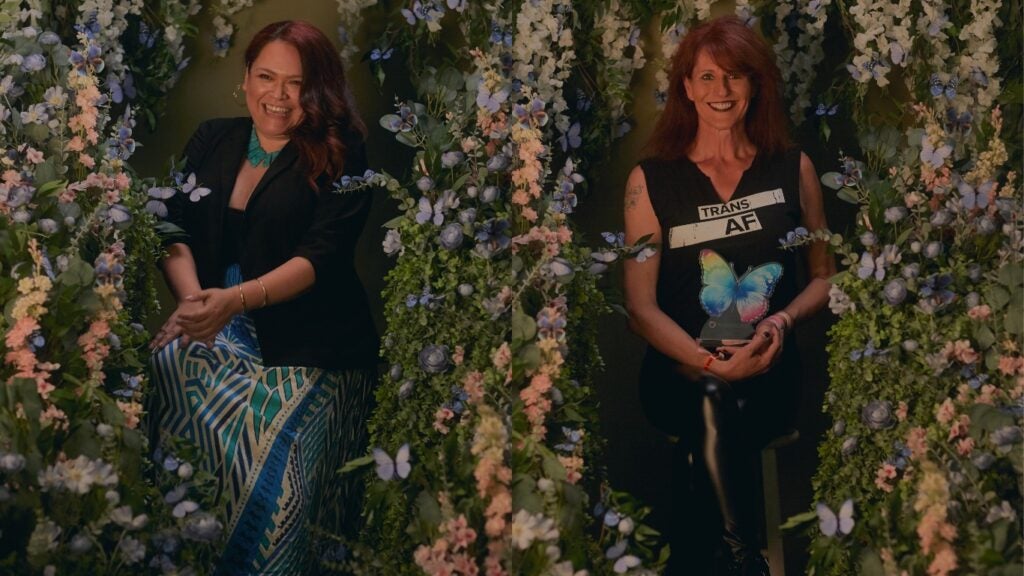
Trans Awareness Week Is Not Enough
